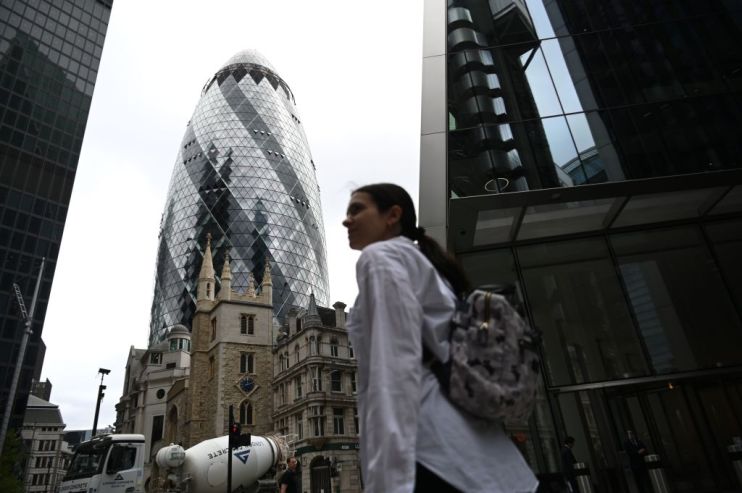Business groups cautiously welcome government’s back to work campaign

UK business groups have welcomed the government’s back to work campaign with some caution, calling for more guidance and government incentives.
The government will launch a major media campaign next week to promote the advantages of returning to work and reassure employees about safety measures.
It comes after a swathe of major City firms announced plans to extend remote working, including fund manager Schroders which has permanently embraced a flexible approach.
However industry bodies and business groups have welcomed the government’s productivity push, emphasising the positive benefits of office work and its impact on local economies.
John Dickie, Director of Strategy and Policy at London First said: “There are some things that just aren’t the same on a video call and our future prosperity relies on getting more people back to their workplaces, more often.”
It is a view shared by many employees in the capital, particularly as many are restricted in cramped living conditions.
But business groups also note that while important for local economies, the decision ultimately rests with individual companies and staff.
Tej Parikh, chief economist at the Institute of Directors (IoD), said: “It’s right for the Government to encourage and enable those who want to return. However, the decision ultimately rests with individual firms and staff, many of whom have found remote working much more suitable than expected.”
Companies need ‘crystal clear’ guidance
Business groups are calling for further clarity in what a return to the office looks like, particularly in regards to safety measures.
National chairman of the Federation of Small Businesses (FSB) Mike Cherry said: “It’s critical that the government continues to set out crystal clear, regularly updated guidance around returning to workplaces safely, especially in areas where restrictions have been reimposed.”
“Every premises is different, so it’s key that small firms are able to draw on the vast array of safety measures that are available, rather than having one model forced on them”, he added.
It is a view shared by BCC Director General Adam Marshall who said businesses need “crystal-clear official guidance and confidence in test and trace systems.”
The productivity push will coincide with the proposed reopening of schools in England and Wales but Marshall said a rapid return to work presents logistical issues.
“For many employees, returning to the workplace depends on schools reopening, the availability of childcare, and confidence that they can use public transport safely.”
Hospitality industry welcomes return of office workers
As well as informal development for employees, a return to offices would help local businesses which are reliant on commuter custom.
CBI boss Dame Carolyn Fairbairn yesterday warned that cities risked becoming “ghost towns” and said a return to work was vital for reviving the economy.
She is echoed by Kate Nicholls, chief executive of UK Hospitality, who today said: “Hospitality in London is hugely reliant on office workers. All the while they stay away, hospitality businesses are going to suffer.”
Underpinning much of the government’s strategy is the fear that an extended period of remote working will decimate the hospitality sector as city centres remain deserted.
“Shops and cafes are struggling, with footfall down by half due to people working remotely”, Helen Dickinson, chief executive of the British Retail Consortium (BRC) said.
“Office workers are an integral part of a thriving city centre and without them, many businesses simply won’t be able to survive.”
This came into sharp focus last night with the announcement that Pret A Manger would cut 2,800 jobs, and more are likely to follow.
The BRC said: “We welcome efforts by businesses to make workplaces safe so that people are able to return to offices, and encourage the government to create incentives to get people travelling into our towns and cities again, supporting the local economies that depend on them.”
Government incentives are essential
Even with further guidance for workplaces, the huge costs associated with bringing staff back to the office is putting firms off.
Research from the FSB reveals more than a quarter of small firms say setting up premises to comply with safety measures will cost in excess of £1,000. National chairman Mike Cherry suggests Back to Work vouchers which would incentivise a return in an affordable way.
“No doubt businesses are considering the futures of their premises. As things stand, rent and business rates make building occupation costly – tackling those overheads will help to keep our firms who have to occupy premises, not least those on our high streets, vibrant and successful”, he added.
Similarly BCC director Adam Marshall said: “Businesses working to help their staff return to the office should also be able to offset the investments they make to ensure their premises are Covid-secure against their tax bill, which would help many get back into city and town centres over the coming months.”